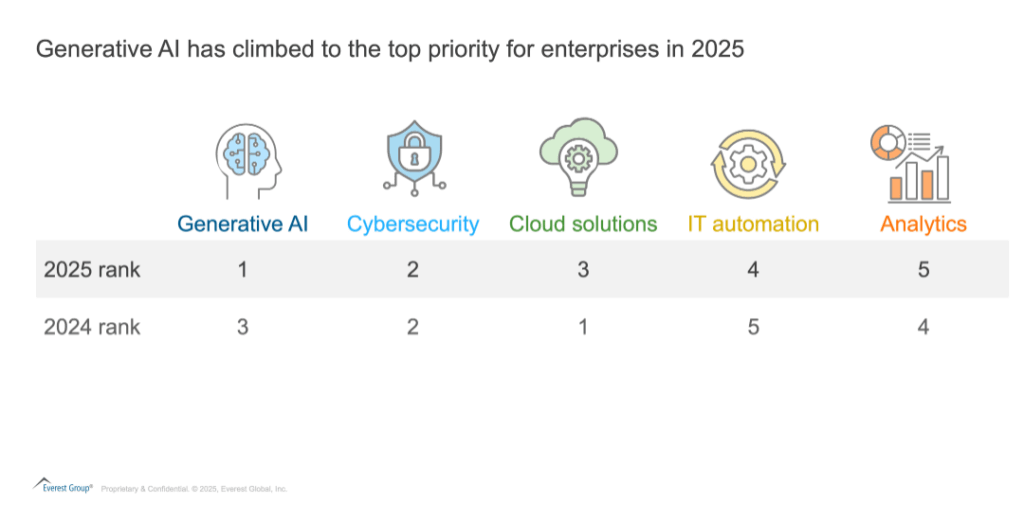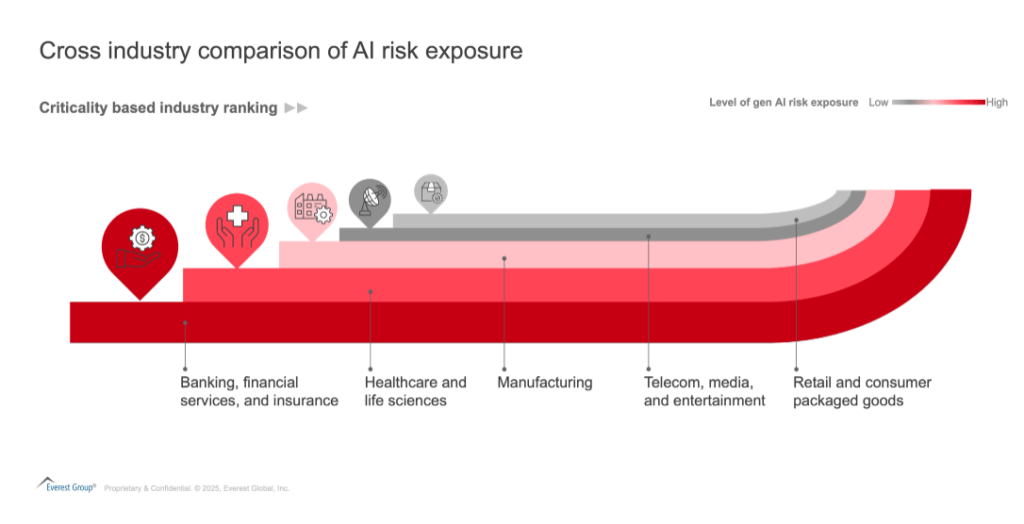
The emergence of the RAAI Officer
As artificial intelligence (AI) becomes a critical force in modern business, the need for ethics, transparency, and accountability in AI systems has never been greater. Organizations are now recognizing AI governance not just as a regulatory requirement but as a strategic necessity for building trust among consumers, regulators, and stakeholders.
Enter the Responsible AI (RAAI) Officer – a role designed to ensure AI-driven innovations are both transformative and ethically sound. These professionals embed fairness, transparency, and accountability into AI systems from inception to deployment and beyond. Even regulated industries like finance and healthcare are increasingly relying on AI for decision-making, making the role of RAAI Officers indispensable. They navigate complex ethical landscapes, ensure compliance with legal frameworks, and align AI outputs with evolving societal norms.
Looking ahead, RAAI Officers will play a pivotal role in shaping AI innovations from the ground up. As AI systems grow more autonomous and integrated into business operations, these officers will develop governance frameworks that embed ethics at every stage of the AI lifecycle. Their work will mitigate risks while fostering sustainable and responsible innovation.
Why every organization needs an RAAI Officer
The rapid integration of AI into business processes exposes organizations to new ethical, operational, and regulatory risks. As AI begins making high-stakes decisions, the need for ethical oversight becomes paramount. Recent incidents have underscored the consequences of inadequate AI governance.
For instance, in 2024, a Bloomberg study revealed that OpenAI’s GPT-3.5 exhibited racial biases when used for job candidate evaluations. The investigation found that when prompted to sort equally qualified resumes, GPT-3.5 ranked resumes with names distinct to Black Americans lower than those associated with other demographics. This case illustrates how biases embedded in AI training data can lead to discriminatory outcomes, exposing organizations to reputational damage and legal challenges.
Such risks have driven organizations to adopt a more proactive stance on AI governance. A 2024 survey by the International Association of Privacy Professionals found that over 80% 1 of privacy teams are now actively involved in AI and data governance, signaling a shift toward stronger oversight.
At the same time, generative AI has emerged as a top strategic priority for enterprises, underlining its critical role in innovation and operational efficiency. Exhibit 1 illustrates how generative AI has climbed to become the top priority for enterprises in 2025, underscoring its growing significance. This heightened importance placed on generative AI adoption highlights the necessity for robust ethical oversight and responsible governance frameworks.

Exhibit 1: Generative AI has climbed to the top priority for enterprises in 2025
However, as organizations transition AI projects from pilots to full-scale production, risk exposure multiplies, especially in sectors handling sensitive data or making high-stakes decisions, such as healthcare, finance, retail, and manufacturing. Exhibit 2 highlights how the criticality of AI-related risks varies by industry, reinforcing the urgent need for oversight in high-stakes domains. With stricter regulations and increasing compliance demands, ensuring ethical AI practices is no longer optional but essential.

Exhibit 2: Cross-industry comparison of AI risk exposure
In financial services, for example, generative AI is widely used for fraud detection, loan approvals, and customer interactions. Yet, these applications must adhere to rigorous fairness, transparency, and data privacy regulations. RAAI Officers play a crucial role in ensuring compliance, mitigating algorithmic biases, and safeguarding against ethical pitfalls in AI-driven decision-making.
This evolving regulatory landscape amplifies the need for structured oversight. Beyond compliance, RAAI Officers help organizations prevent privacy violations, increase AI transparency, and secure sustainable, responsible AI growth. By embedding ethical principles into AI governance, they not only minimize risks but also foster trust among consumers, regulators, and stakeholders, essentially making their role indispensable in the era of AI-driven business transformation.
Emerging roles in AI governance
With AI’s increasing role in shaping business decisions, multiple leadership positions have emerged to oversee its development, deployment, and ethical impact. As per the Future of Work Report, AI at Work by LinkedIn, published in November 2023, 13% 2 more organizations have created AI executive leadership roles since December 2022. The RAAI Officer stands out by focusing exclusively on the ethical dimensions of AI deployment. While roles like the Chief AI Officer (CAIO) and Chief Data Officer (CDO) concentrate on AI strategy and data management, respectively, the RAAI Officer ensures that ethical considerations are not overshadowed by technical or strategic objectives. While the CAIO may push for AI advancements and the CDO ensures data integrity, the RAAI Officer serves as the ethical compass, ensuring AI-driven decisions do not compromise fairness, privacy, or social responsibility.
For example, in healthcare, the CAIO might drive the integration of AI to enhance diagnostic accuracy, while the CDO oversees the quality and governance of the data feeding these AI systems. The RAAI Officer, however, ensures that these AI-driven diagnostics are free from biases, uphold patient privacy, and comply with healthcare regulations. This collaborative dynamic ensures that AI initiatives are not only innovative and data-driven but also ethically sound and socially responsible. By integrating the efforts of these roles, organizations can ensure AI is both innovative and ethically responsible.
Despite these emerging roles, the need for a clearly defined RAAI Officer remains critical. While Chief AI Officers (CAIOs) and Chief Data Officers (CDOs) may incorporate aspects of ethical oversight in their broader mandates, their primary focus tends to center on technological advancement and data governance, respectively. Ethical considerations such as bias mitigation, fairness, and societal impact risk being overshadowed by innovation goals or compliance tasks when not explicitly prioritized. A dedicated RAAI Officer ensures that responsible AI practices are embedded throughout the lifecycle of AI development and deployment. By championing ethical foresight, this role fosters a culture of accountability, balancing innovation with societal responsibility.
Key responsibilities of an RAAI Officer
The role of the RAAI Officer is rapidly evolving to meet the challenges of responsible AI management. The key responsibilities of an RAAI officer include:
1. Designing ethical AI frameworks
RAAI Officers develop comprehensive ethical frameworks aligned with their organization’s strategic goals and regulatory requirements. These frameworks evolve alongside AI advancements, shifting regulations, and emerging ethical challenges.
2. Implementing and monitoring AI policies
They establish and enforce AI policies that promote fairness, transparency, and accountability. By continuously monitoring AI systems, they ensure ongoing compliance and take corrective action when necessary.
3. Strategic AI risk management
Rather than merely reacting to risks, RAAI Officers anticipate potential ethical, operational, and reputational risks. They collaborate with legal, technical, and business teams to proactively address emerging challenges.
4. Promoting AI literacy and ethical decision-making
RAAI Officers lead educational initiatives to ensure AI literacy extends beyond technical teams, fostering a company-wide culture of responsible AI use.
5. Ensuring AI transparency and explainability
They work closely with data scientists to make AI decision-making transparent and understandable for regulators, executives, and end-users, which is critical for sectors where AI impacts lives, such as healthcare and finance.
6. Crisis management and ethical audits
In cases where AI systems fail to meet ethical or regulatory standards, RAAI Officers manage crisis responses, conduct ethical audits, and implement improvements to prevent future issues.
7. Evaluating AI performance and societal impact
They establish metrics to assess AI’s ethical performance, tracking fairness, bias reduction, and societal impact to maintain trust and transparency.
8. External communication and reporting
RAAI Officers maintain accountability by communicating AI governance practices to external stakeholders, ensuring transparency, and positioning their organizations as leaders in responsible AI innovation.
Challenges faced by RAAI Officers
Despite their growing importance, RAAI Officers face several challenges, some of which include:
- Navigating dynamic ethical contexts – AI functions within diverse contexts, requiring ethical guidelines to be flexible and adaptable
- Keeping pace with evolving regulations – AI laws are still developing globally, requiring a proactive approach to compliance
- Ensuring systemic accountability – As AI becomes more autonomous, determining accountability for AI-driven decisions remains a complex issue
The future of the RAAI Officer role
As AI technologies continue to evolve, the role of the RAAI Officer will expand in influence. These professionals will not only govern AI systems but also shape how businesses use AI responsibly, ensuring ethical considerations are embedded in corporate strategy.
RAAI Officers will likely gain greater influence at the executive level, working alongside C-suite leaders and board members to align AI initiatives with long-term business goals. Additionally, their expertise will extend beyond AI ethics and law to include insights from behavioral psychology, economics, and geopolitics, all of which are critical for understanding AI’s broader impact on society.
Beyond governance, RAAI Officers will contribute to a broader vision for AI’s role in fostering a fairer, more inclusive society. By ensuring AI serves all stakeholders equitably, they will help drive both innovation and ethical responsibility, shaping a future where AI benefits everyone.
If you found this blog interesting, check out our report which delves into AI governance Everest Group Reports – View.
If you have any questions, are interested in exploring the rise of RAAI’s further or would like to discuss any other AI related topics in more detail, feel free to contact Khushi Dham ([email protected]) and Abhivyakti Sengar ([email protected]).











